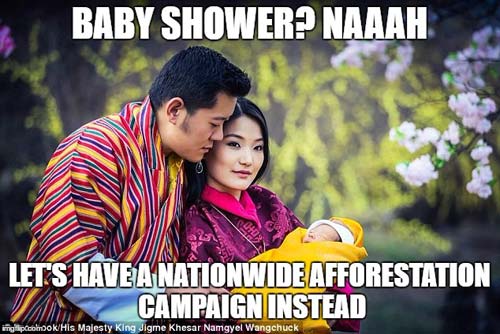World politics as of late has been nothing short of, what’s the word?
Let’s go with lackluster.
There’s been a lot of whooping and yelling as candidates around the globe race to win a seat in their respective political party or country or kingdom.
Yet, as per the usual, people seem to forget that regardless of personal political agenda, we all have one big giant thing in common: planet earth.
It has always baffled me how this fact gets lost in the shuffle when the bottom line is if we don’t all do our best to help keep this planet clean, there will be nothing left to govern.
Doomsday image aside, Australia just recently elected a new Minister of Environment and Energy who doesn’t seem to be all that concerned with helping the environment at all.
![Josh Frydenberg and Matt Canavan [image source: theaustralian.com.au], crowdink, crowd ink, crowdink.com, crowdink.com.au,](http://crowdink.com/wp-content/uploads/2016/07/Chates-Minister.jpg)
Dubbed “the new Mr. Coal,” Josh Frydenberg is joined by Matt Canavan as Minister of Resources and Northern Australia and Greg Hunt as Innovation Minister to create a “trifecta.”
Though these men were selected to protect Australia’s incredibly diverse and unique ecosystems, innovate renewable energy, and protect the land, some of them still doubt the accuracy of climate change.
Well.
Matt Canavan claimed that, “polar ice was not melting at an ‘unnatural rate’ meaning this disappearing ice was not evidence of human influence on the climate.”
Frydenberg also added, “I certainly believe in the moral case that Tony Abbott and others have put that our coal, our gas, our energy supplies do lift people out of energy poverty, and that’s going to be an important theme of my term in this role.”
Picking three men who support the advocacy for the further aggressive use of fossil fuels and denial of melting ice caps doesn’t quite scream “forward thinking.”
In fact as Greenpeace campaigner Nikola Casule summed up, Frydenberg’s outlook is frankly, “an embarrassing relic from a different era.”
It’s no secret that our collective global use of toxic fossil fuels has affected the environment. Throw scary words like ‘global warming’ and ‘climate change’ out the window and this fact still remains.
To publically state that, “there is still a level of uncertainty about the impact of carbon emissions on global warming,” as Matt Canavan has, is a bit frightening after Australia’s prized possession, the coral reef, just suffered its worst coral bleaching in history.
![Bleached Coral [image source: slate.com], crowdink, crowd ink, crowdink.com, crowdink.com.au](http://crowdink.com/wp-content/uploads/2016/07/Chates-Coral.jpg)
Raise your hand if you’ve never heard of Bhutan. Don’t worry you’re not alone.
A tiny, mysterious and isolated country sandwiched deep in the Himalayas between India and China has been internationally ignored for years, yet they have accomplished some of the most incredible feats in environmentally-friendly policy worldwide.
Out of 214 listed countries, Australia ranks #11 for its carbon footprint. Bhutan? Not even on the list!
It has incredibly become the world’s first and only carbon negative country, meaning its environment absorbs more carbon dioxide than it emits.
DID YOU KNOW? Bhutan is the world’s first carbon-negative country. #carbonfree #ClimateHope pic.twitter.com/ttdrAaChk3 via @Green_Thumb2016
— Little Green Space (@LGSpace) May 26, 2016
Though still developing socially and economically, Bhutan has fiercely protected its environment and continues to be progressive in relation to climate change.
At the Paris Climate Summit this year Bhutan expressed their goal of achieving a zero net greenhouse emission and zero waste by 2030, as well as, growing 100% organic food by 2020.
In addition, their constitution insists no less than 60% of their land remains forested and in honor of the newest member of the royal family this year all 82,000 households planted a tree.

If this small country that is rarely seen in print can achieve such inspiring results when focused on protecting the environment, imagine what Australia, a country everyone has heard of, could do with a little perspective for the new “trifecta.”


![5 Reasons You Should Travel Alone Airplane [image source: chau nguyen/ http://thedevilhatessweatpants.blogspot.com.au ], crowd ink, crowdink, crowdink.com, crowdink.com.au](https://crowdink.com/wp-content/uploads/2016/08/Chau-airplane-218x150.jpg)























![Bleached Coral Bleached Coral [image source: slate.com], crowdink, crowd ink, crowdink.com, crowdink.com.au](https://crowdink.com/wp-content/uploads/2016/07/Chates-Coral.jpg)





